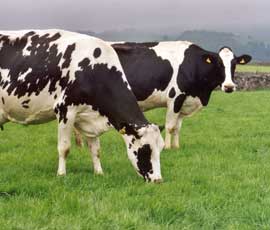UK farming ‘unsustainable’, chief scientist warns

British farmers must change their management practices if they are to move towards more sustainable food production in future, the government’s chief scientist has warned.
Sir John Beddington said farmers would have to adapt to meet the challenges of producing more food with less environmental impact and less water, while dealing with climate change and increased demand for renewable energy and land.
Speaking at Duchy College in Cornwall last week (23 June), Professor Beddington said current global agriculture was unsustainable.
He said it accounted for 70% of water use, contributed 10-12% of greenhouse gas emissions and still failed to adequately feed the world. To produce more from less, better research and knowledge transfer was essential, he added.
“There is a big gap between what is actually produced and what we could be producing. In America, for example, the best farmers produce double the yields of the worst.”
Inefficient irrigation had to be stopped, or aquifers would be exhausted in 25-30 years, leaving many parts of the world incapable of growing crops, he added.
But farmers also had to manage land to mitigate flood risk, with extreme weather events becoming increasingly common.
“There are smart things, such as hydroponics, we can do with agriculture and we need to be thinking about it now,” Professor Beddington said.
To cope with increasingly volatile weather, yields and food prices, nations should consider how to manage strategic regional food reserves, he added. They should also invest in genetics to reduce emission from livestock and manage soils to sequester carbon.
“We’ve got to think more carefully about our soil and biodiversity,” he said. “You ignore these trends at your peril and UK farmers can lead the way.
“But we need to be looking at small-scale changes – it would be crazy to dramatically change current practice.”
